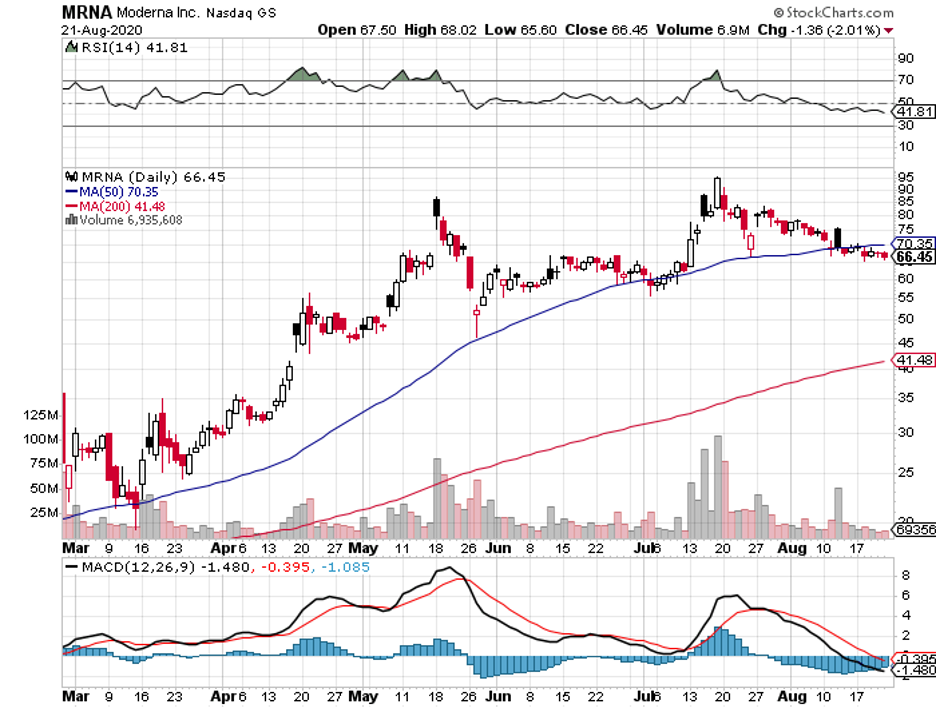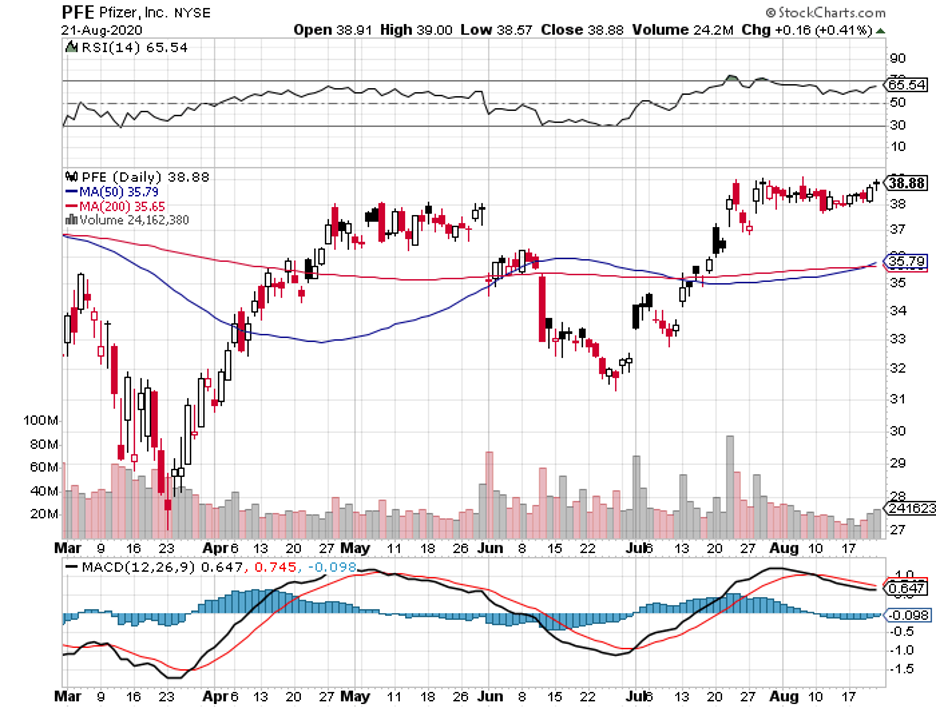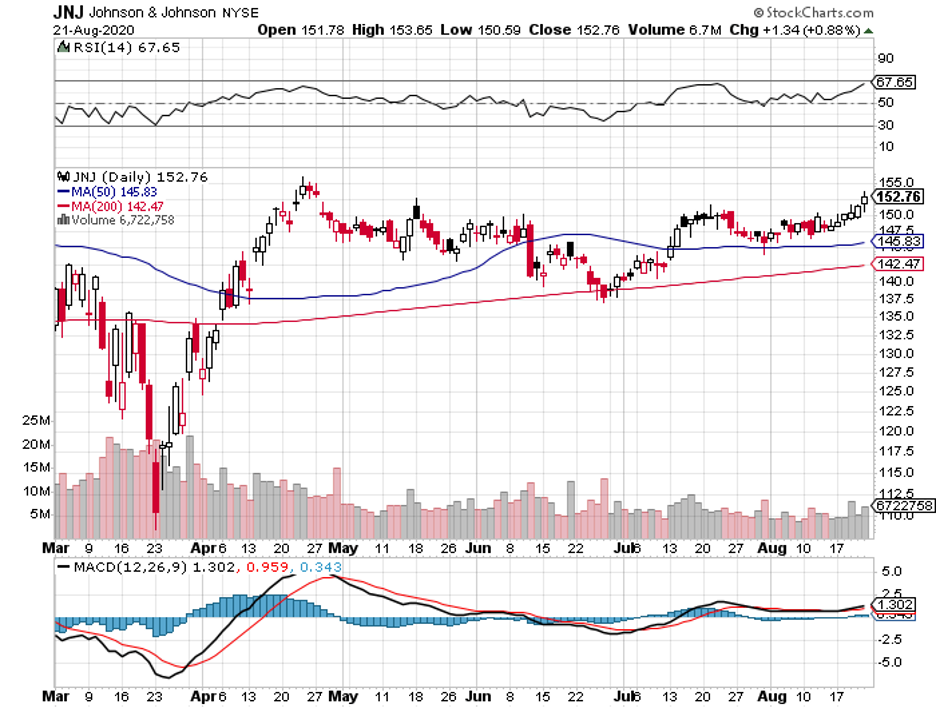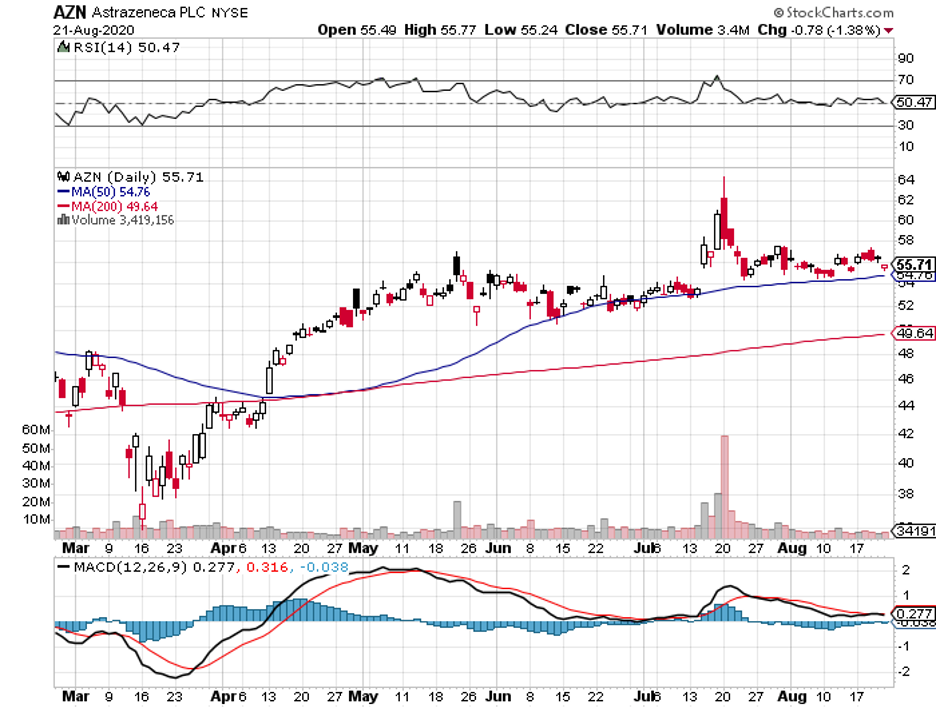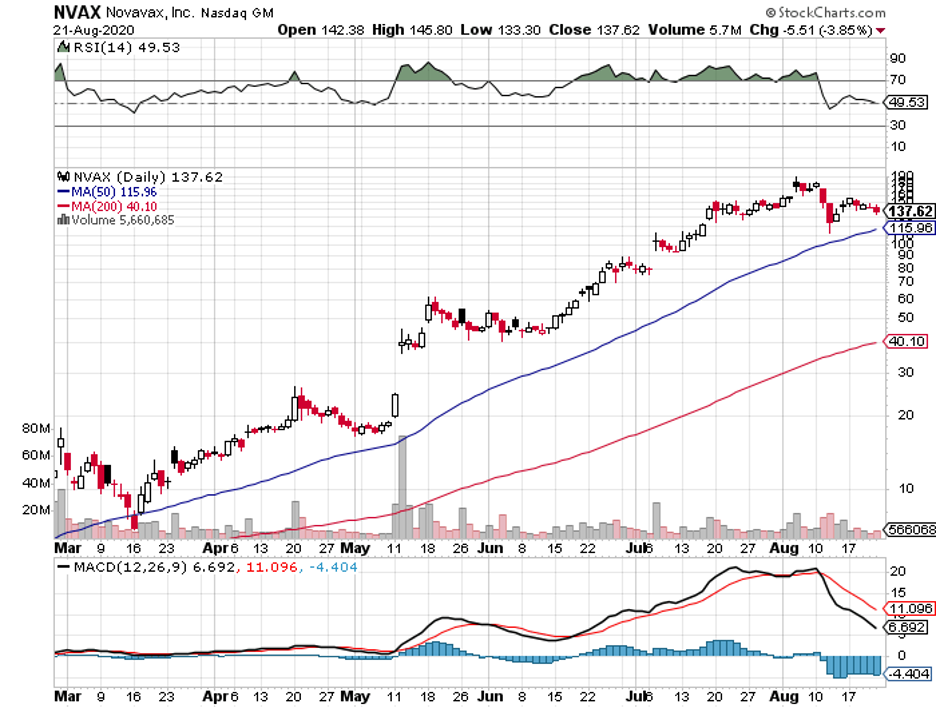Let the Vaccine Pricing Wars Begin
The COVID-19 vaccine race is winding down to its final lap, with at least seven candidates already undergoing Phase 3 trials.
Now, one question inevitably arises: How much will these vaccines cost?
Moderna (MRNA), one of the frontrunners in this race, revealed that its vaccine, mRNA-1273. will be priced somewhere between $32 and $37 for each dose.
The moment this pricing was announced, health advocates were up in arms to point out the high price of the vaccine especially with the funding Moderna received from the US government.
However, the company clarified that this would only apply to “small-volume” transactions.
According to Moderna, the pricing for their coronavirus vaccine should be viewed in two phases: the pandemic and the endemic periods.
During the pandemic period, the coronavirus vaccine would be given a price “well below” its actual value. The pricing will change and eventually be more in line “with other innovative commercial vaccines” when the crucial period passes.
For reference, flu shots are typically priced somewhere between $50 to $120 depending on the clinic while a single-dose HPV vaccine from companies like Merck (MRK) can cost up to $235.
Despite the clamor to further investigate this pricing scheme, Moderna sealed another deal with the US government worth $1.525 billion if the company succeeds in meeting its promised timeline.
This will translate to roughly $100 million doses.
It also stands to gain an additional $8.125 billion in follow-up doses plus the $300 million bonus if it can score an FDA approval by January 31, 2021.
Another frontrunner in this coronavirus vaccine race is Pfizer (PFE).
Among the healthcare and biotechnology companies working on a vaccine, Pfizer and its German partner BioNTech (BNTX) are reported to have the most lucrative contract with the federal government to date.
The company recently sealed a $1.95 billion deal for 100 million doses. This puts Pfizer’s coronavirus vaccine at roughly $20 per dose.
Both vaccine candidates from Pfizer and Moderna require two doses.
In comparison, Johnson & Johnson (JNJ) has a “one-and-done” vaccine candidate. That is, the Ad26.COV2-S showed potential that it could only require a single dose.
This is definitely a competitive edge as it will eventually be a cheaper and more convenient alternative to the two-dose vaccine offered by its competitors.
In terms of pricing, JNJ recently landed a $1 billion contract with the US government to deliver 100 million doses. This translates to $10 per dose.
However, AstraZeneca (AZN) appears to be the favored candidate by the US government.
In fact, recent reports suggest that the Trump administration is considering bypassing normal regulatory standards in the UK to fast track the delivery of the vaccine candidate to the US — all before election day.
What we know so far is that AstraZeneca, which is developing its vaccine in collaboration with the University of Oxford, signed a deal with the US government worth $1.2 billion.
This will amount to 300 million doses of their vaccine candidate, which puts the cost of each dose to roughly $4. At this price point, AstraZeneca offers the cheapest option.
Meanwhile, small-cap biotechnology company Novavax (NVAX) recently signed a similar deal with the government.
The Maryland-based company agreed to manufacture 100 million doses of its vaccine for $1.6 billion. This works out to approximately $16 per dose.
Next to Moderna, Novavax’s journey this year has been considered a “Cinderella story” by a lot of investors.
The company ended 2019 all banged up, with the biotechnology stock falling by almost 90%, thanks to its failed respiratory syncytial virus (RSV) vaccine candidate.
However, Novavax rose from the ashes following the encouraging results of its late-stage study for NanoFlu, another vaccine candidate.
By March 2020, Novavax’s flu vaccine released promising data that put NanoFlu in direct competition against Sanofi’s (SNY) flu vaccine Fluzone Quadrivalent.
Riding the momentum of their success with NanoFlu, Novavax joined the COVID-19 vaccine race with NVX‑CoV2373.
While companies like Pfizer, Moderna, JNJ, and AstraZeneca have been gaining media attention, an increasing number of health experts and analysts are claiming that Novavax’s candidate might just be the best in class.
Outside the companies under Trump’s Operation Warp Speed, China’s state-owned company, Sinopharm, also announced the pricing for its COVID-19 vaccine candidates.
The pricing is quite higher than those put forward by other vaccine developers, with the Beijing company quoting $145 for two doses.
Aside from China, Russia also has a vaccine candidate expected to be out in the market soon.
Vladimir Putin claims that Russia’s coronavirus vaccine candidate is similar to the one created by AstraZeneca and Oxford University.
No information has been given on either the results of the vaccine’s late-stage trials or its pricing.
To date, the World Health Organization (WHO) has recorded 7 vaccine candidates undergoing Phase 3 clinical trials, while there are 15 more going through Phase 2 expanded safety trials.
An additional 25 candidates are currently under Phase 1 small-scale trials plus another 138 pre-clinical candidates slated for human trials soon.
The development and success of at least one coronavirus would undoubtedly reverse the economic and financial damage brought by the pandemic. Hopefully, that time will come soon.

